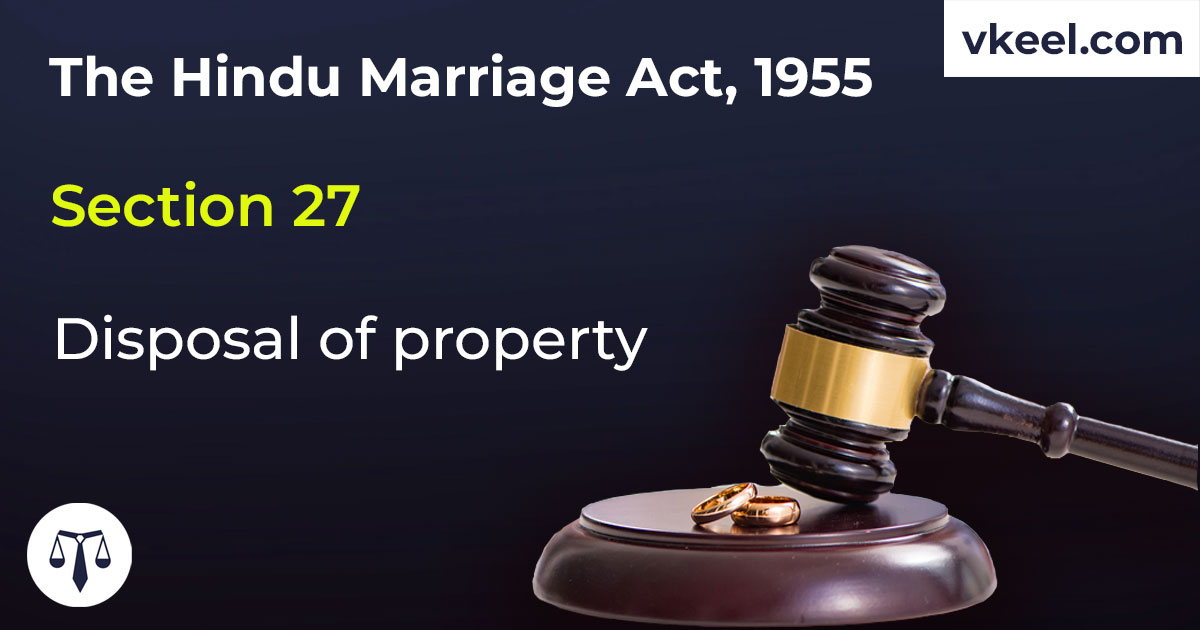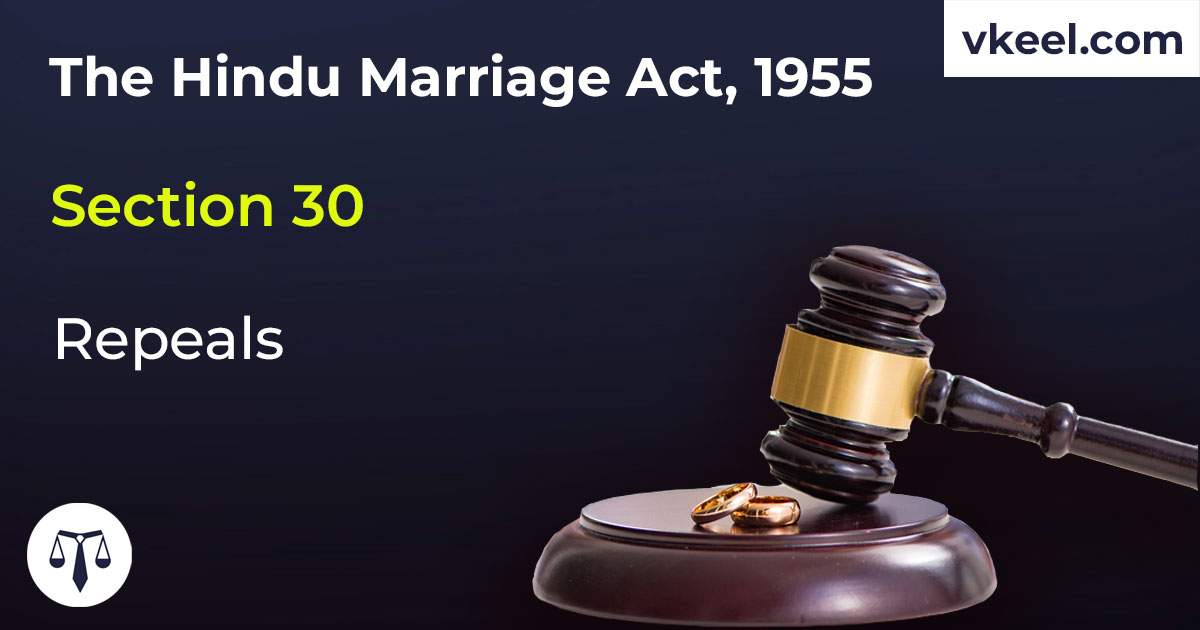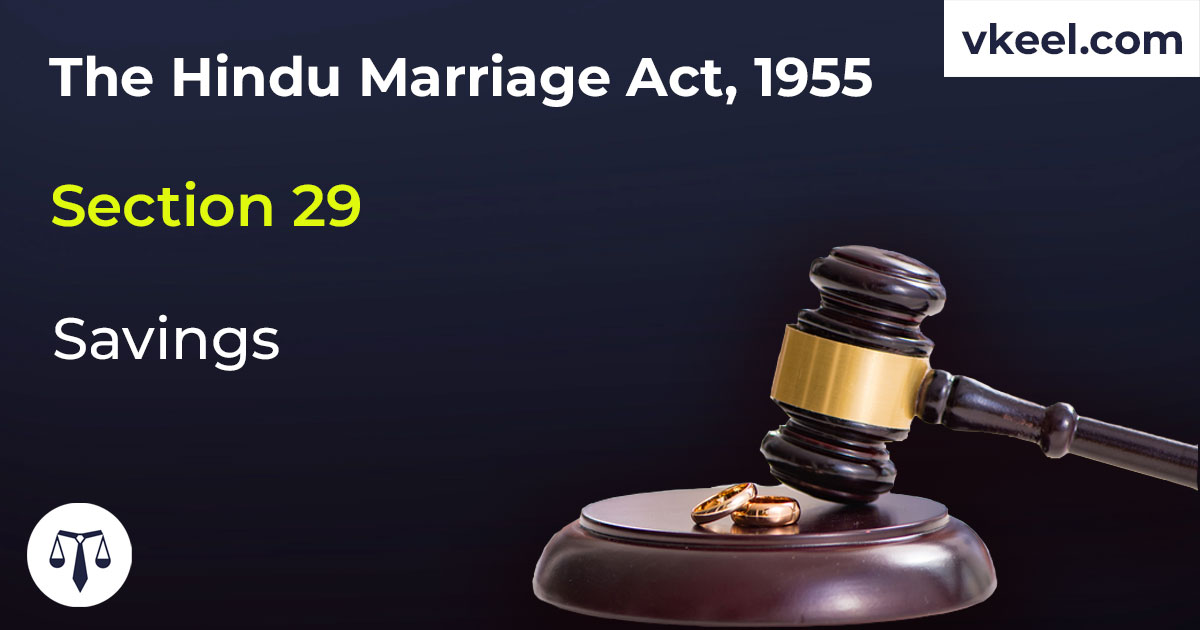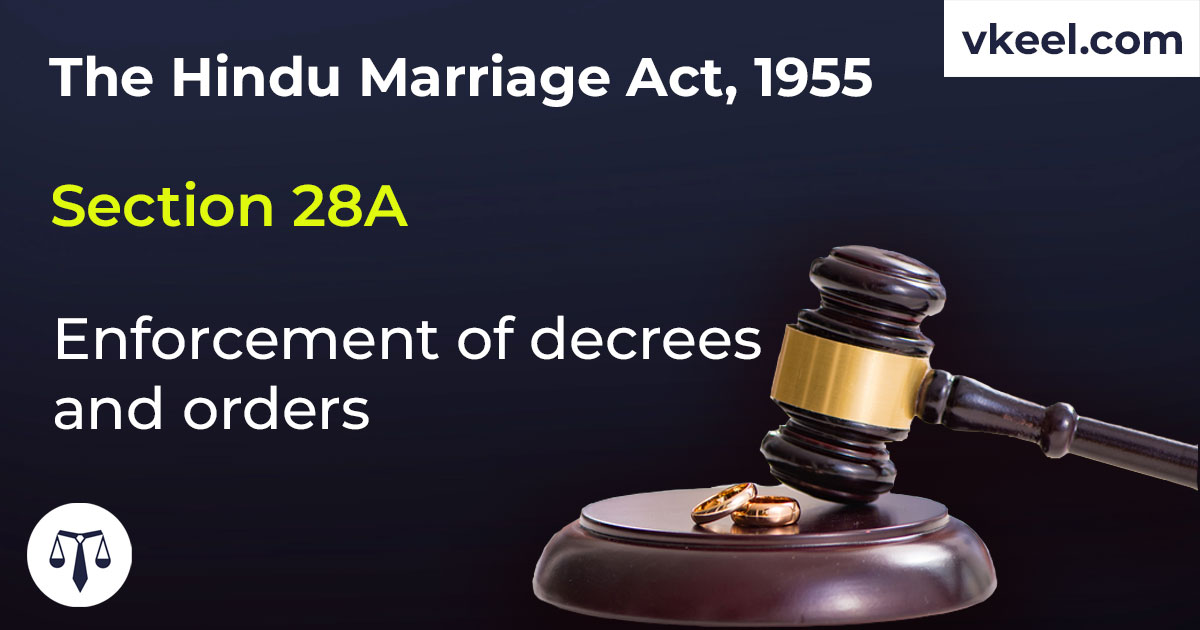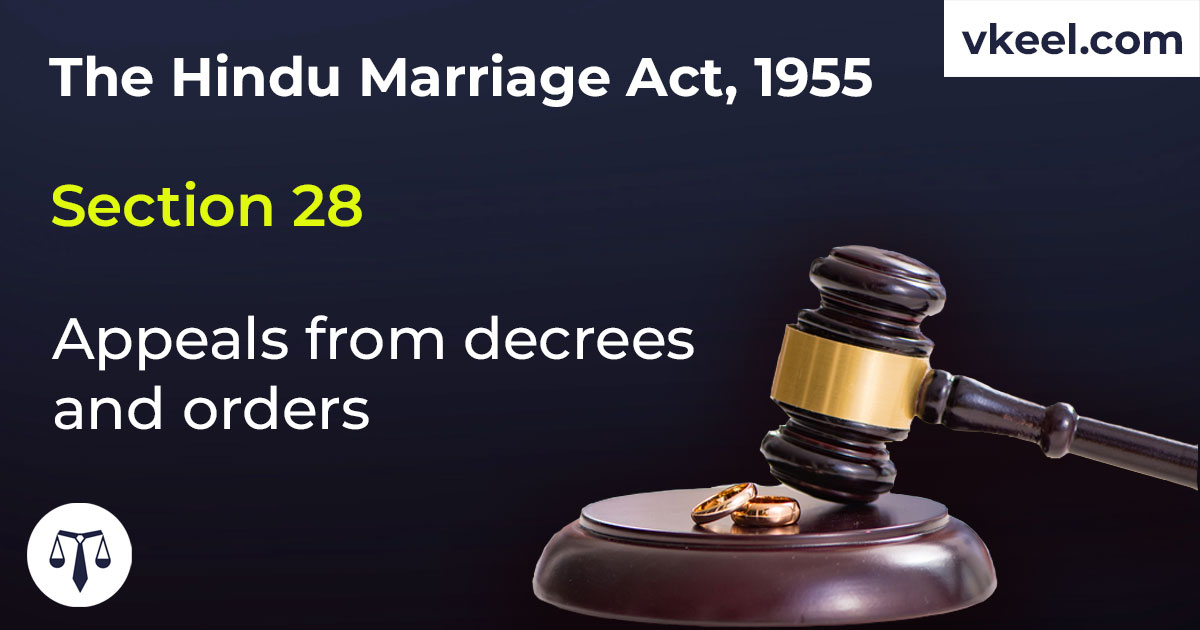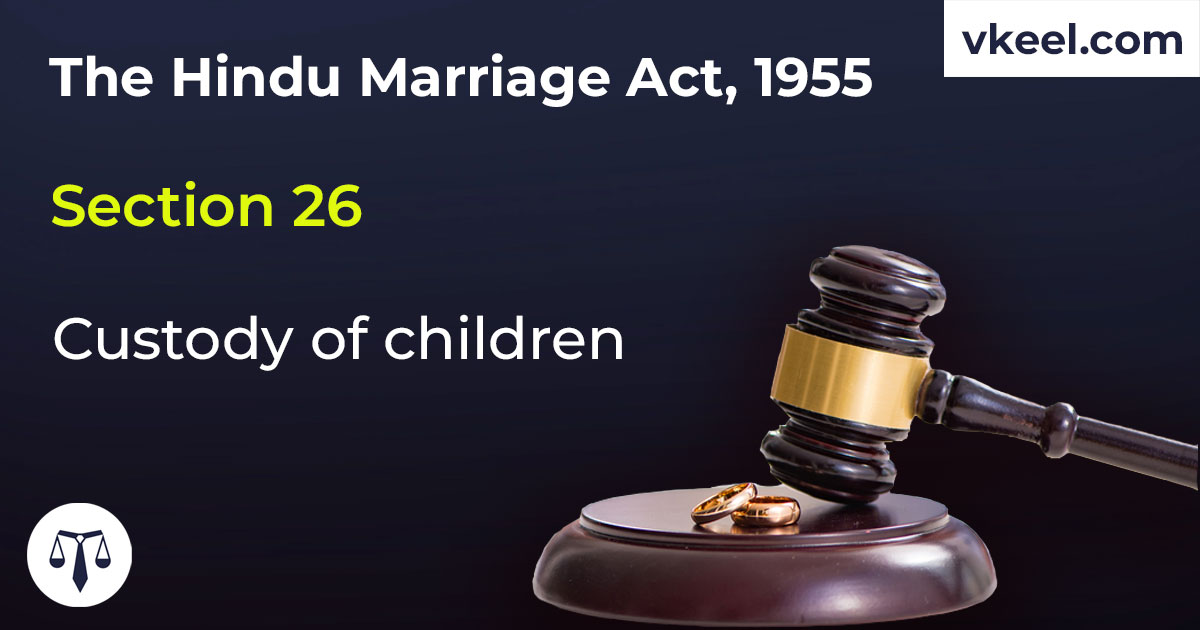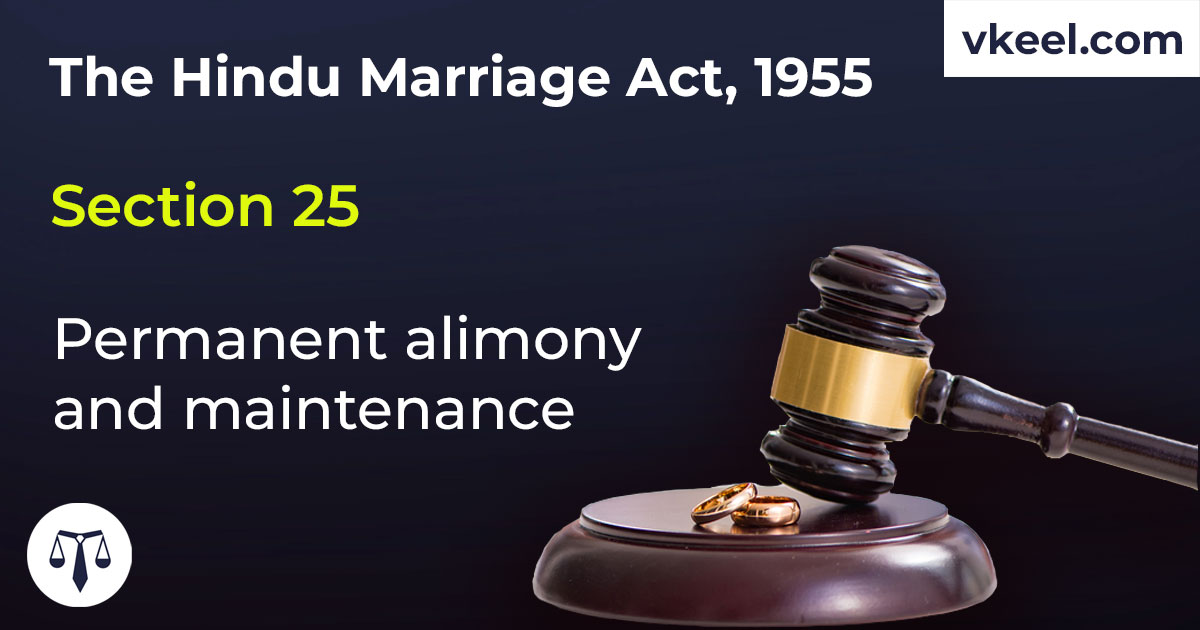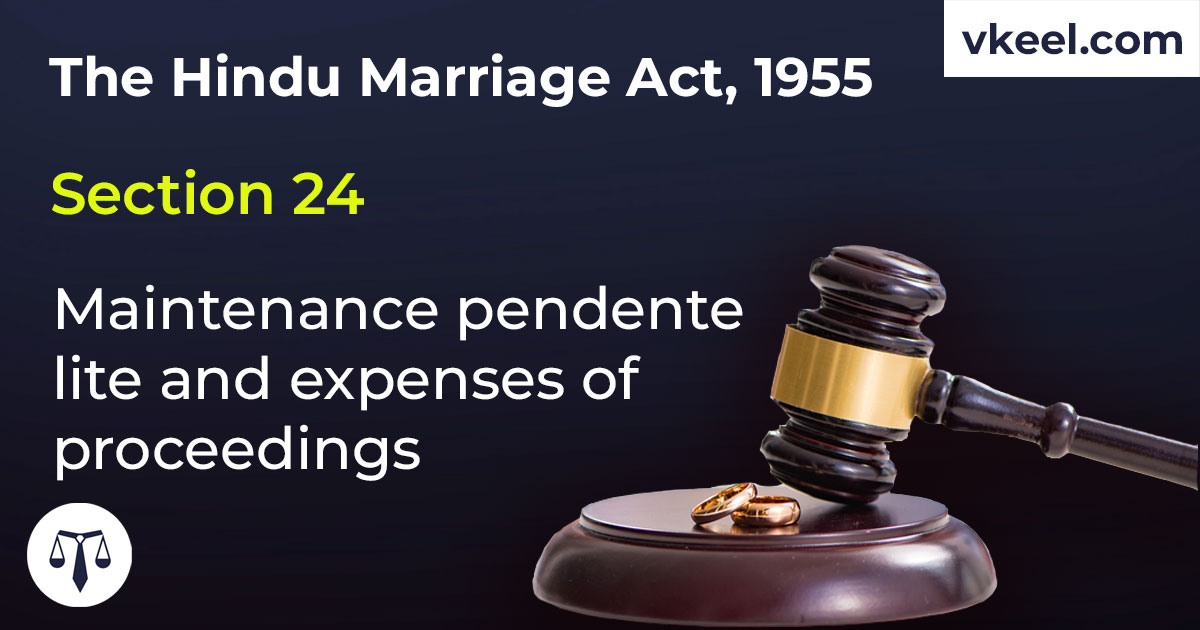Section 27 Hindu Marriage Act 1955 – Disposal of property
By Vkeel Team
Table of Contents
Description
“Section 27 Hindu Marriage Act 1955”
In any proceeding under this Act, the court may make such provisions in the decree as it deems just and proper with respect to any property presented, at or about the time of marriage, which may belong jointly to both the husband and the wife.
Role of Section 27 Hindu Marriage Act 1955 in Property Disputes Between Spouses
Section 27 Hindu Marriage Act 1955 is an important provision that governs the rights of spouses in property disputes. This section provides that any property acquired by either spouse during the course of the marriage is to be considered joint property, and both spouses have an equal right to it. This means that if one spouse acquires property during the marriage, the other spouse is entitled to a share of it.
Section 27 also provides that if one spouse has acquired property prior to the marriage, then that property remains the sole property of that spouse. This means that the other spouse does not have any right to the property, and cannot claim a share of it.
In addition, Section 27 also provides that if one spouse has acquired property through inheritance or gift, then that property remains the sole property of that spouse. This means that the other spouse does not have any right to the property, and cannot claim a share of it.
Finally, Section 27 also provides that if one spouse has acquired property through a will or other legal instrument, then that property remains the sole property of that spouse. This means that the other spouse does not have any right to the property, and cannot claim a share of it.
Overall, Section 27 Hindu Marriage Act 1955 is an important provision that governs the rights of spouses in property disputes. It provides that any property acquired by either spouse during the course of the marriage is to be considered joint property, and both spouses have an equal right to it. It also provides that if one spouse has acquired property prior to the marriage, through inheritance or gift, or through a will or other legal instrument, then that property remains the sole property of that spouse. This ensures that each spouse is able to retain their own property, and that the other spouse does not have any right to it.
How Section 27 Hindu Marriage Act 1955 Protects the Rights of Spouses in Property Disputes
Section 27 Hindu Marriage Act 1955 is a provision that protects the rights of spouses in property disputes. This section states that any property acquired by either spouse during the course of the marriage is to be considered joint property and is to be divided equally between the two spouses in the event of a divorce. This provision ensures that both spouses are treated fairly and equitably in the event of a divorce.
The section also states that any property acquired by either spouse prior to the marriage is to remain the sole property of that spouse. This provision ensures that the rights of the spouse who owned the property prior to the marriage are protected and that the other spouse does not have any claim to the property.
In addition, Section 27 Hindu Marriage Act 1955 also states that any property acquired by either spouse after the marriage is to be considered joint property and is to be divided equally between the two spouses in the event of a divorce. This provision ensures that both spouses are treated fairly and equitably in the event of a divorce.
Overall, Section 27 Hindu Marriage Act 1955 is an important provision that protects the rights of spouses in property disputes. This section ensures that both spouses are treated fairly and equitably in the event of a divorce and that any property acquired during the course of the marriage is divided equally between the two spouses.
Description Source: indiacode
Disclaimer:
The information provided in the article is for general informational purposes only, and is not intended to constitute legal advice or to be relied upon as a substitute for legal advice. Furthermore, any information contained in the article is not guaranteed to be current, complete or accurate. If you require legal advice or representation, you should contact an attorney or law firm directly. We are not responsible for any damages resulting from any reliance on the content of this website.

